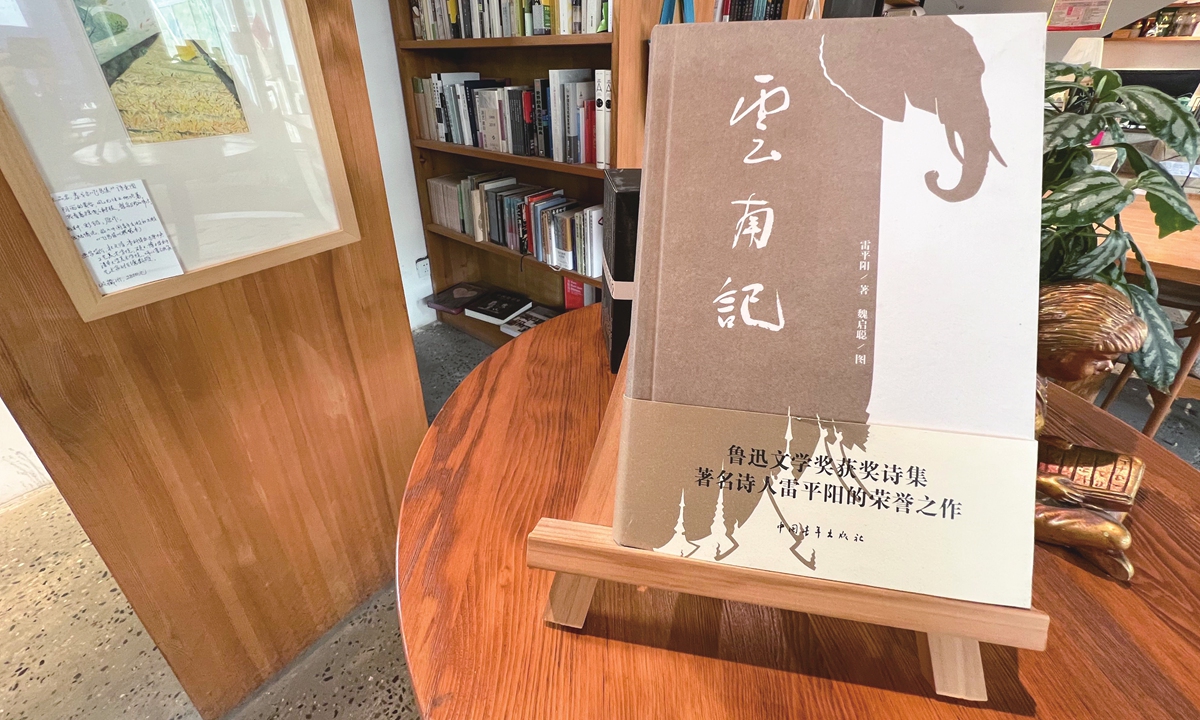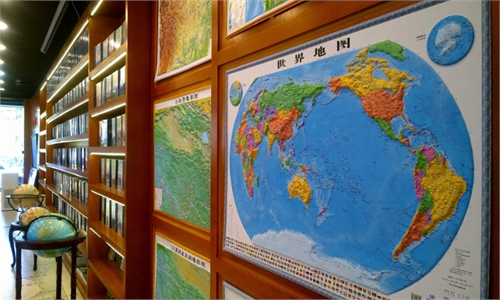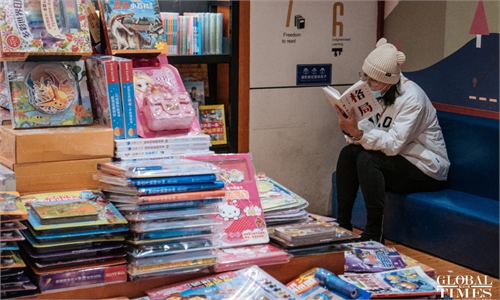ARTS / BOOKS
Beijing bookstores survive through unique business models, govt subsidies
Making their own way

Poetic Books, an independent bookstore located in central Beijing Photo: Lou Kang/GT

Beijing's avant garde Zhongshuge Bookstore Photo: VCG
Not far from Yonghe Gong, or the Lama Temple, in central Beijing's bustling business area, a hidden independent bookstore has become a favorite among visitors both for its style and its exclusive operation mode that is unique even in the country.
Four years ago, the owner of the Yonghe Book Yard, a place sitting in a sunken courtyard with antique Eastern decorations, decided to give his books another unseen value: ensuring each book was signed on the first page by the author.
"We invited some of the authors of the books we sell in our store and asked them to sign the books. Whenever the books sell out we just invite them back to sign more," bookstore owner Peng Mingbang told the Global Times on Wednesday.
"We sell them at the same price as those without signatures. It only benefits our readers. I want them to feel a closer link with the authors and, as a public space, to give all the people coming here some warmth," the 60-year-old said.
"And that's what has allowed us to stand solid among all the bookstores across Beijing and even the entire country."
The idea has brought him fruitful results: As life in China has been returning to normal, the bookstore has been holding book meets with the authors almost every day.
This revitalization reflects the situation at most bookstores across the city after they strived to survive through the pandemic and the rise of e-commerce.
Pull the readers back
In the northern part of the city, another bookstore owner has also found a unique way to keep his business afloat.
As one of the earliest bookstores in Beijing to embrace the "bookstore plus" business model, a combination of book selling and other activities, Be Ark Bookshop tried the path as early as 2009.
While many younger bookstores are currently struggling to survive by trying out new business models, some older bookstores have been able to draw upon their experience since they had dealt with a similar struggle that pushed them to the brink a decade ago.
Since its opening, the Be Ark Bookshop has tried to ensure readers return by holding events such as small fairs for handicrafts or secondhand books.
Zhao Yuechao, manager of the bookstore, described the experience running the bookstore for the past several years as a "narrow escape" as it has been a hard job to keep readers around.
The bookstore is now known for its series of events and multi-purpose spaces such as an antique tea room, vinyl record audio-visual room and unique installation art.
Every few months, Zhao changes the decorations inside the store to give readers a fresh experience. Every Saturday night, the bookstore also holds a small concert for readers.
Despite all this, running a bookstore remains a difficult task as most of the market has been occupied by online book services.
To help more bookshops survive the pandemic and give them a boost so they can transform to better meet customers' needs, the Beijing government has been providing subsidiaries to business owners.
Zhao noted that he has been receiving these government subsidies since 2018, and that business has been improving since the Spring Festival in January.
One manager at a Xinhua Bookstore in Beijing's Shunyi district also once told media that they have received a total of more than 2 million yuan ($292,000) in government support.
Shouldering responsibility
As a public space, bookshops bear many social responsibilities. This can be as small as acting as a shelter on rainy days or, as Pan Xiaolong believes, helping out the entire community by benefiting children.
"In order to make reading more effective and mobilize people's enthusiasm and increase participation, we combine books with dance, music and art so readers can tie unique memories to a book," Pan, who runs the Yue Wu Yue Du bookstore in the capital's Miyun district, told the Global Times on Wednesday.
The bookstore, about 1,200 square meters in total, has a 300-square-meter reading area on the first floor and a nearly 600-square-meter theater on the second floor.
"We also host events in the bookstore, such as book signings and readings, and other events," Pan noted.
"Many children come here to read and study, which does bring visitors to our bookstore," he added.
Pan told the Global Times that during the pandemic they decided to hold livestreams to read children's picture books and recommend good books to readers, which achieved positive results. They currently have more than 1 million followers on the streaming platform.
Pan said that combining books with art forms such as dance and music makes them more impactful for children, allowing them to have a different perspective during their development.
"Bookstores are also a cultural institution for the public. We have to stay in touch with readers as much as possible, so that our books can have the greatest influence on society," Peng Mingbang added.
"Readers reward a bookstore for having good books, and we believe the market will do so as well," Peng added.


